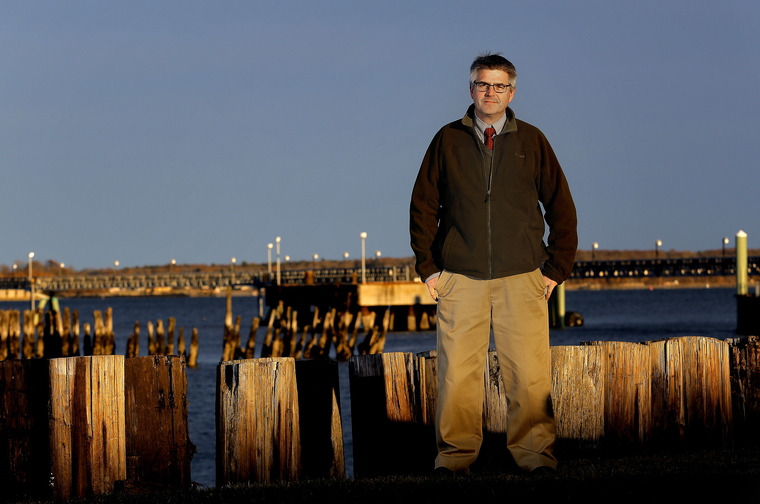Portland has a new waterfront coordinator in Bill Needelman, and he couldn’t be showing up at a better time.
After a long static period defined by an ultimately fruitless fight over building a hotel and office complex on the Maine State Pier, the city is seeing growth in some of the key industries that have fueled the Portland economy for centuries.
• A new daily car ferry service between Portland and Nova Scotia and a growing cruise ship business are making Portland a passenger port again, using the the Ocean Gateway terminal the way it was meant to be used.
• Regular visits by the Icelandic container ship line Eimskip are making Portland a cargo port again, putting Portland on the way to Europe for goods from all over North America.
• Private investment in lobster processing and lobster shipping companies on the Maine State Pier will build on the city’s role as a seafood hub.
There are also major mixed-use developments planned for property at both ends of the waterfront, from the old Portland engineering company site on the East End to a rail-bus-hotel-office and entertainment center on Thompson’s Point.
All of this takes place between the long-term pressures of aging marine infrastructure and the perennial attraction of water views to developers of nonmarine businesses like restaurants, hotels and luxury housing.
What’s happening in Portland is more than just a local event. The Portland-area economy is a driver of the state’s economy, so when Portland does well, Maine does well.
But there are local issues involved as well, and it makes sense for the city to have a full-time staff member to work with the wide array of groups that have an interest in what happens in the harbor. Aside from the property owners and the developers, the voice of city property tax payers and the people who rely on the waterfront for jobs should always be heard when decisions are made.
This will not be an easy task. Needelman should treat the whole waterfront as an invaluable public asset whose development has an enormous impact on the local and regional economy. But he should not forget city residents’ intent, as expressed through the citizen-initiated zoning ordinance, to maintain Portland Harbor as a working waterfront where water-dependent operations and the businesses that support them always have a place.
This is an exciting time on Portland’s waterfront, and it’s good that the city is putting someone there to look out for its future.
Send questions/comments to the editors.



Success. Please wait for the page to reload. If the page does not reload within 5 seconds, please refresh the page.
Enter your email and password to access comments.
Hi, to comment on stories you must . This profile is in addition to your subscription and website login.
Already have a commenting profile? .
Invalid username/password.
Please check your email to confirm and complete your registration.
Only subscribers are eligible to post comments. Please subscribe or login first for digital access. Here’s why.
Use the form below to reset your password. When you've submitted your account email, we will send an email with a reset code.